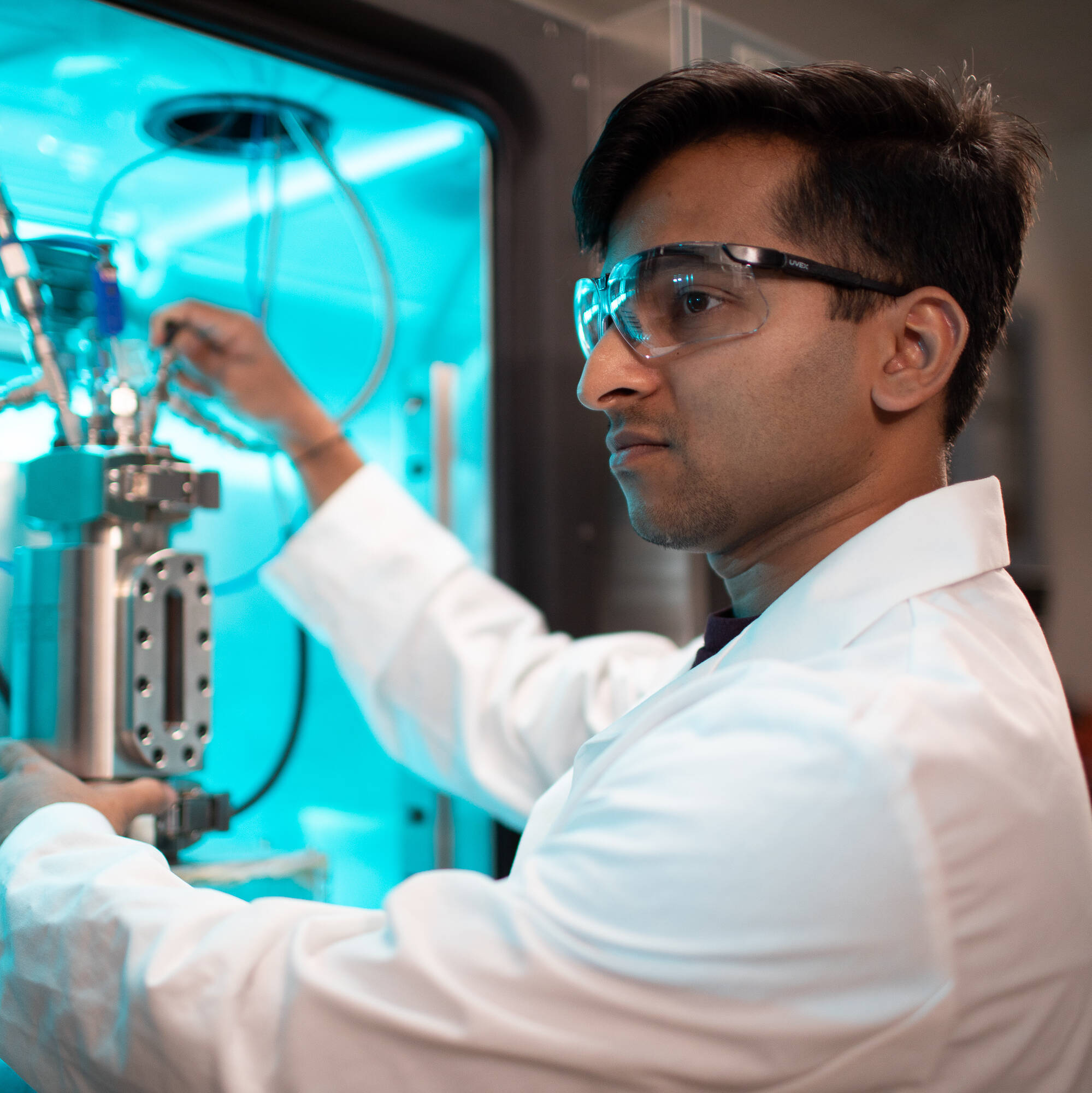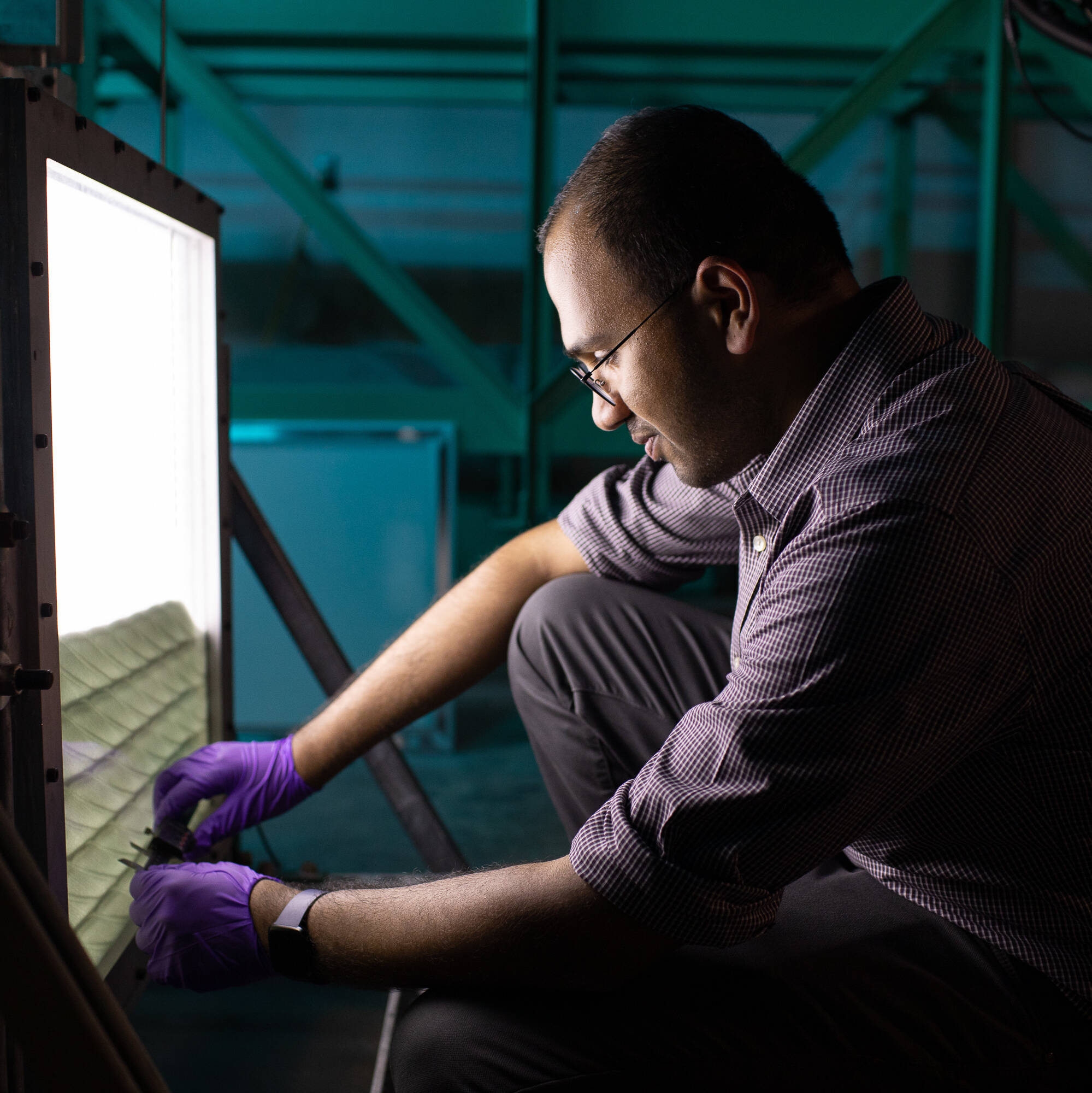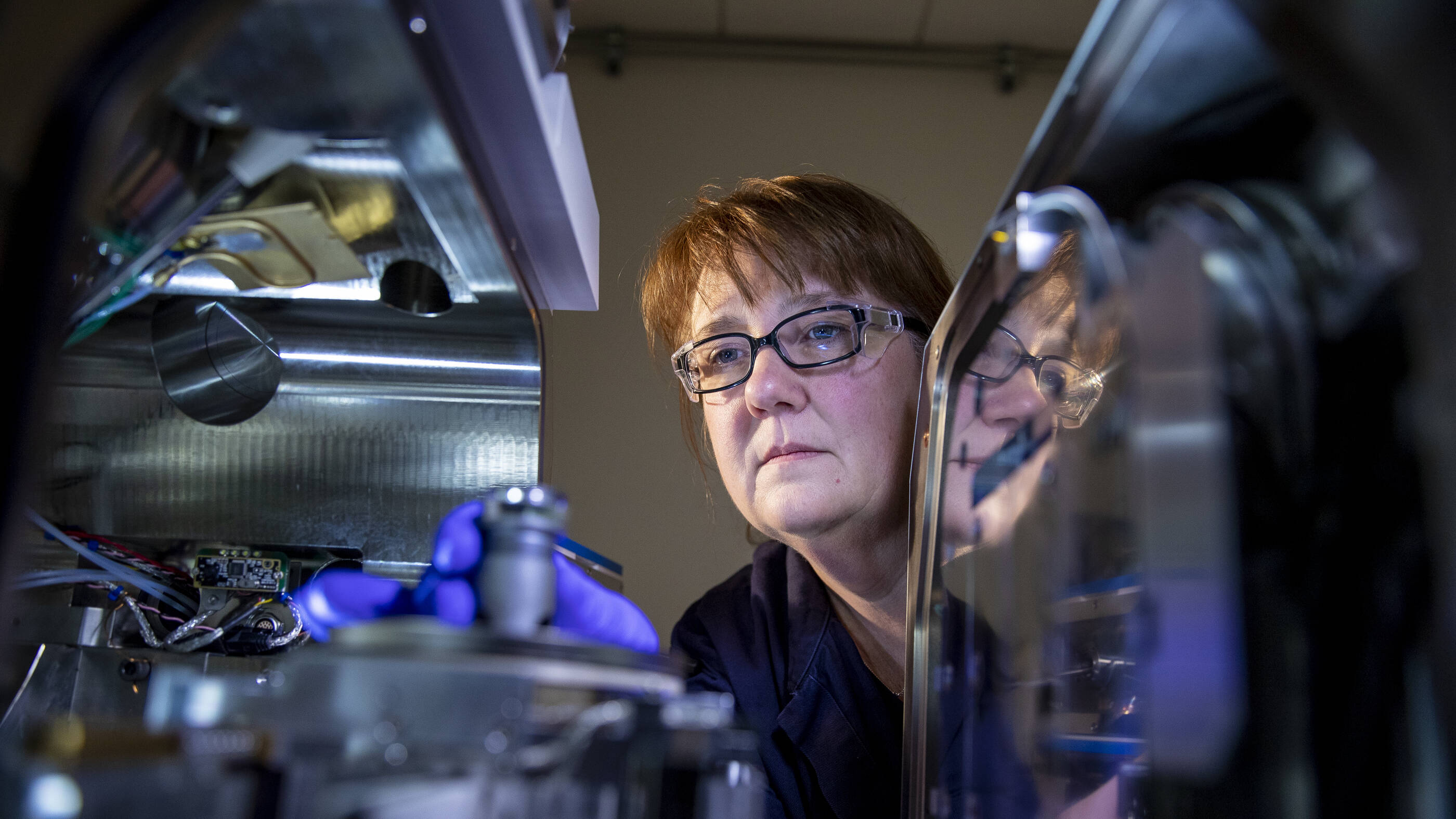selected item
Voices from the University of Texas labs
January 30th, 2020
These are some of the projects taking shape in the labs of the University of Texas at Austin, where a select group of students is working on potential energy solutions of tomorrow.
The students, more formally known as University of Texas Energy Institute Emerging Technology Fellows, are supported by ExxonMobil and are looking to solve big energy challenges, including how to provide more energy with fewer emissions.
The fellows program provides research funding and an external industrial perspective through the involvement of mentors, many of whom work in ExxonMobil’s R&D labs.
After they graduate, fellows pass the baton to the next generation of aspiring energy scientists, ensuring a continuous supply of fresh thinking.
Here are five fellows who are leading the next generation of university research.
A new class of researchers
Meet the UT Energy Institute Emerging Technology Fellows. These graduate students each have a hand in progressing the world's energy transition with the support of ExxonMobil. Listen to five current and former fellows explain how their work is transforming our energy future.
-
 Palash Acharya, Mechanical engineering, Ph. D.CO2 hydrates: Palash is working on freezing CO2 by trapping carbon dioxide in blocks of ice-like structures, called hydrates, for long-term storage. His research focuses on creating hydrates that freeze more quickly and efficiently than ever while capturing CO2. This technology could one day be a part of the carbon capture portfolio.
Palash Acharya, Mechanical engineering, Ph. D.CO2 hydrates: Palash is working on freezing CO2 by trapping carbon dioxide in blocks of ice-like structures, called hydrates, for long-term storage. His research focuses on creating hydrates that freeze more quickly and efficiently than ever while capturing CO2. This technology could one day be a part of the carbon capture portfolio. -
 Emily Beckham, Science and geology, MASubsurface CO2 capture: Emily, a recent UT graduate, identified reservoirs that are suitable for CO2 storage. After identifying those reservoirs, she developed pathways to efficiently flow carbon dioxide into them.
Emily Beckham, Science and geology, MASubsurface CO2 capture: Emily, a recent UT graduate, identified reservoirs that are suitable for CO2 storage. After identifying those reservoirs, she developed pathways to efficiently flow carbon dioxide into them. -
 Sam Johnson, Mechanical engineering, Ph. D.Grid instability: Focusing on the Texas energy grid, Sam explores the effect renewables have on grid stability. He's expanding knowledge of energy infrastructure by working with both researchers and grid operators to support a reliable transition to lower-emission power.
Sam Johnson, Mechanical engineering, Ph. D.Grid instability: Focusing on the Texas energy grid, Sam explores the effect renewables have on grid stability. He's expanding knowledge of energy infrastructure by working with both researchers and grid operators to support a reliable transition to lower-emission power. -
 Prasanna Krishnamurthy, Petroleum engineering, Ph. D.Modeling CO2: Prasanna's research explores large- and small-scale carbon capture and storage. Specifically, he builds physical reservoir models that use 3D printed rocks to mimic the movement of CO2 inside the earth. He works with other engineers and geologists to apply his findings to actual sites.
Prasanna Krishnamurthy, Petroleum engineering, Ph. D.Modeling CO2: Prasanna's research explores large- and small-scale carbon capture and storage. Specifically, he builds physical reservoir models that use 3D printed rocks to mimic the movement of CO2 inside the earth. He works with other engineers and geologists to apply his findings to actual sites. -
 Jenny Ryu, Petroleum engineering, MAInjecting CO2: Jenny is a recent UT grad. As a fellow, she developed geomechanical models to answer questions like how much carbon dioxide reservoirs can hold and how best to inject CO2.
Jenny Ryu, Petroleum engineering, MAInjecting CO2: Jenny is a recent UT grad. As a fellow, she developed geomechanical models to answer questions like how much carbon dioxide reservoirs can hold and how best to inject CO2.
Explore more

Collaborating with leading universities to meet global energy demand
ExxonMobil has worked with dozens of leading universities and academic research institutions around the world as part of our commitment to finding meaningful and scalable solutions to meet global energy demand and reduce emissions.ExxonMobil expands agreement with Global Thermostat, sees promise in direct air capture technology
IRVING, Texas – ExxonMobil and Global Thermostat have expanded their joint development agreement following 12 months of technical evaluation to determine the feasibility and potential scalability of Global Thermostat’s technology that captures carbon dioxide (CO2) directly from the air.ExxonMobil, Georgia Tech and Imperial College London publish joint research on potential breakthrough in membrane technology
IRVING, Texas – Scientists from ExxonMobil, the Georgia Institute of Technology and Imperial College of London have published joint research on potential breakthroughs in a new membrane technology that could reduce emissions and energy intensity associated with refining crude oil. Laboratory tests indicate the patent-pending membrane could be used to replace some heat-intensive distillation at refineries in the years ahead.
